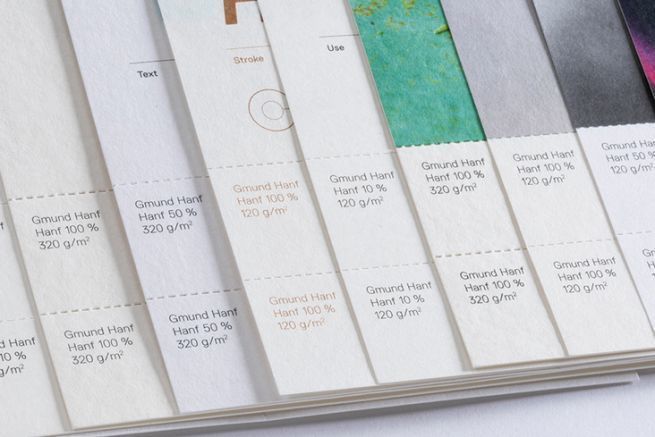After the papers composed of 10 and 50% cannabis sativa, the German manufacturer Gmund launches a third reference: the Gmund Hanf, a substrate 100% European hemp.
Gmund Hanf paper also has many advantages in its manufacture. For the same planting area, the manufacturer can produce four to five times more paper than wood-based paper. In addition, hemp does not deplete the soil and can be replanted immediately after the harvest.
Because hemp fibers are longer and more stable, hemp pulp also offers higher tensile strength, tear strength and moisture resistance than wood pulp. Hemp fibers are naturally very light in color and therefore require less bleaching. And like its cellulose counterpart, this paper can be recycled several times.
The Gutenberg Bible printed on hemp paper
Gmund points out on its website that hemp was once a material used to make paper: until 1883, 75 to 90 percent of the paper produced in the world was made of hemp fibers. The Gutenberg Bible was also printed on hemp paper in 1455. "It would have disintegrated long ago if it had been printed on wood-based paper." assures the manufacturer.
"The long fibers, which are a challenge in paper production, make the new substrate both firm in structure and wonderfully soft to the touch." describes the papermaker.
Gmund Hanf is available in weights from 120 to 320 g/m 2 and is compatible with offset, screen printing','www.printindustry.news/search/serigraphy');" class="lien-auto-article" href="https://www.printindustry.news/search/serigraphy">screen printing, hot foil stamping, embossing, letterpress and die cutting. It is suitable for brochures, packaging and greeting cards, but does not smoke, the paper manufacturer warns!








